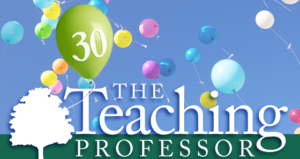
Taking Time to Refresh, Recharge, and Recommit
I continue to worry that we devalue the affective dimensions of teaching—the emotional energy it takes to keep delivering high-quality instruction.
Most faculty are on solid ground in terms of expertise. We know and, in most cases, love our content. We don’t get tired of it—oh, maybe we do a bit in those foundation courses, but the content isn’t what wears us down; it’s the daily grind, having to be there every class session, not just physically present but mentally and emotionally engaged as well. Good teaching requires more energy than we think it does.






